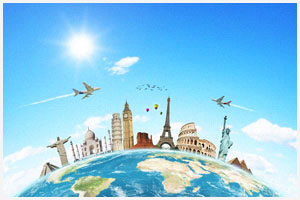
The emergence of the standard corresponds to a process that can be considered quite long. It is based on the fact that tourism activities have become the most important social, cultural and economic event of recent times. As a matter of fact, the increase in national and international travel in the past fifty years has led to the question of how to compare hotel classifications worldwide, regularly asked by many public and private sector stakeholders.
Thereupon, the World Tourism Organization (WTO) made an effort to carry out a study on classification in the 2001 year program. The ISO 18513 standard is an internationally recognized standard for tourism activities. During the preparation of this standard, a serious effort was made by the Consumer Committee working within the International Standards Organization. In fact, prior to this work of the International Standards Organization, a meeting was held in China in 1995 on the Challenges of Services in International Standardization.
In these meetings, whose main purpose was to brainstorm, studies were made to establish an internationally valid standard on services, and the reasons why standardization is necessary in enterprises operating in the service sector, whether it is possible to determine a standard and how such a standard is applicable internationally. discussed.
Subsequently, a number of initiatives have been taken on standardization in tourism enterprises, supported by the World Trade Organization. Subsequently, the World Tourism Organization decided that a study on classification should be made and included this work in the 2001 year calendar.
After all these years, the last step of these efforts to bring the services provided in the tourism sector to a standard was taken by ISO in 2003 and the ISO 18513: 2003 Tourism Services Management System standard was published.
The basic principles of the ISO 18513 standard are determined as follows.
Housekeeping and front desk (signs, reservation, terminology)
Signs: common symbols should be developed that can be easily understood by all tourist consumers regardless of their nationality. Hot-cold water, do not disturb warning or the telephone line and the internal numbers of the reception-ion should be standardized.
Training:
It is necessary to establish training programs that will ensure that kitchen and restaurant employees are at a certain level of education and to receive a specific hour of training, and to set standards for this.
Security
Standards for establishing a safe working environment in the kitchen and restaurant area that will increase work efficiency and physical planning should be established.
Voltage and electrical plugs
Particularly emphasized by the tourist consumers traveling for business. Standardization should be provided in all hotels
Health (food and beverage, security, education, purchase)
Air and water quality of the enterprises should be standard. Cleaning of food and beverages, kitchens and restaurants and employees must be in accordance with the standards. Employees' clothing should be common, health checks should be done regularly. Kitchen and restaurant areas should be suitable for safe and efficient work. Workers in kitchens and restaurants need to be at a certain level of education. A standard procurement process should be prepared. The standard should also be set for supplier companies.
Performance and product evaluation
It is necessary to determine the performance of employees of hotel establishments and to comply with a certain standard in product valuation methods.
In the preparation of the Tourism Services Management System standard, the existing classification systems have been taken into consideration, common qualifications that are the basis for similar classifications have been put forward, and international minimum criteria that can be accepted by the rating of hotels and similar establishments have been established and the methods and rules for the classification of enterprises have been determined. In this way, the free marketing of tourism services and the factors that could create unfair competition were eliminated.
For more information, you can reach our expert team from our contact addresses and phone numbers and you can get answers to all your questions.